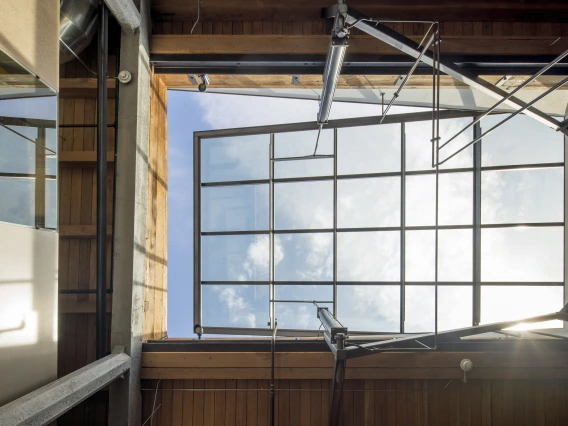The Bachelor of Science in Sustainable Built Environments is a 4-year, 121-credit, interdisciplinary undergraduate degree. View the curriculum sheet for the recommended sequence of courses.
MINIMUM ADMISSION REQUIREMENTS
- 2.7 Core GPA (on a 4.0 scale)
- 1110 SAT Math and Critical Reading composites score, and/or
- 24 ACT composite score
Students who have earned a GPA below 2.7 but are admissible to The University of Arizona may be evaluated on an individual basis for admission to the Sustainable Built Environments program.
Undergraduate admissions occur through The University of Arizona Undergraduate Admissions Office. Within the application, you will be able to select Sustainable Built Environments as a major from the drop-down menu.
EMPHASIS AREAS
Students declare an emphasis area in within the B.S. in Sustainable Built Environments their junior year. Each emphasis area is specifically designed to prepare students with both a theoretical understanding and practical skills in the chosen area of study.
Students who choose the Sustainable Communities emphasis area will gain insight on how local and regional planning influence community design. Students will learn planning theory, transportation planning, and urban development. Students will understand comprehensive city plans, how planning impacts and is influenced by the environment, and how to make cities more sustainable through smart planning.
Students who choose the Sustainable Buildings emphasis area will gain insight on the theories and techniques behind analyzing building efficiency. Students will study topics such as: net-zero energy design, energy conservation, passive solar and natural ventilation, and climate response. Students will be able to analyze existing and planned structures for energy efficiency and create plans to make them more efficient.
Students who choose the Sustainable Landscapes emphasis area will gain insight and skills on the importance of landscapes in the built environment. Students will study various topics such as: water harvesting, passive cooling, and heat island mitigation, climate adaptability, and how the built environment impacts health. Students will be able to understand how landscapes play a pivotal role in a community and ways to make them more sustainable and useful.
Students who choose the Sustainable Real Estate Development emphasis area will gain insight into sustainable and responsible real estate development. Topics students learn include sustainable practices, urban design, real estate finance, site development, and construction.
Students who choose the Heritage Conservation emphasis area will understand the importance behind saving our historic structures. Preserving historic structures allows us to understand the environmental, cultural, and economic impacts of the structure. Students will learn how the process behind conservation, issues in conservation, and resource management.
Apply today Check on your application






